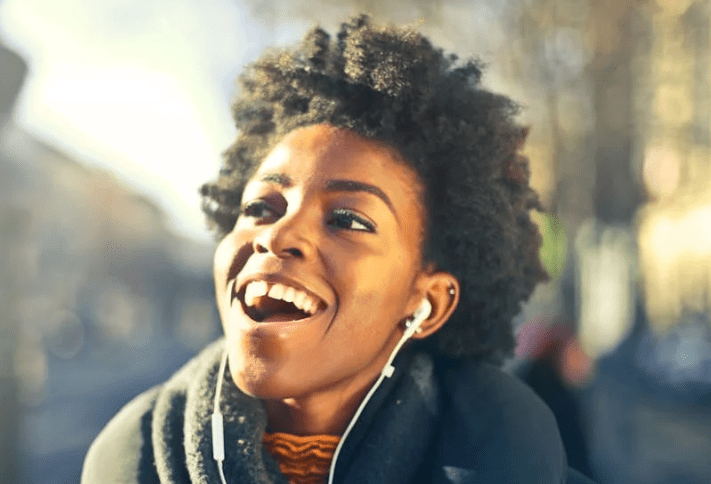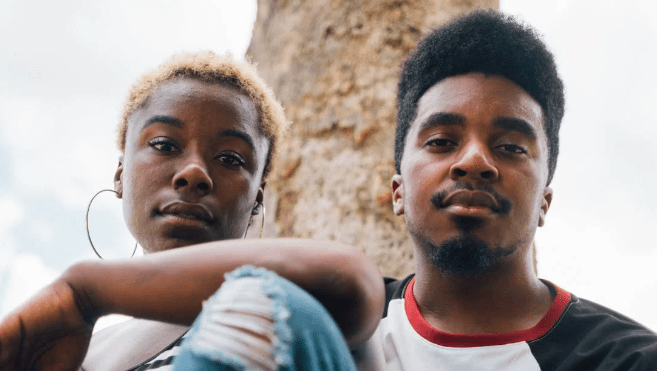Can Black People Get Lice:- Demystifying the common misconception surrounding lice infestations in black hair is crucial to dispel myths and provide accurate information. In this detailed article, we will delve into the topic of whether black individuals can indeed get lice in their hair. Expect a comprehensive exploration of factors influencing lice infestations, symptoms to watch out for, effective treatment options, and preventive measures tailored to black hair care. Rest assured, by the end of this piece, you will be equipped with valuable insights and practical advice.

In this article, we address a common misconception regarding lice in black hair. Can black people get lice in their hair? This question often goes unanswered, leading to confusion and misinformation. We will delve into the facts behind this issue and provide readers with a clear understanding of the matter. By the end of this article, you can expect to have a well-informed perspective on lice and black hair. Stay tuned for expert insights and valuable knowledge on this important topic.
Demystifying common myths about lice among black individuals
In order to dispel the prevailing misconceptions surrounding lice infestations among people of African descent, it is imperative to address the misguided notion that black individuals are immune to these pesky parasites. Contrary to popular belief, lice can indeed affect individuals of all races and ethnicities, regardless of hair texture or color. By debunking this myth, we can foster a more inclusive and informed dialogue about lice prevention and treatment within the black community.
Revealing the Truth: Can You Bleach Wet Hair?
Another prevalent myth is that lice only thrive in certain types of hair and are less likely to infest coarser or thicker hair commonly found in black individuals. However, it is essential to understand that lice are opportunistic creatures that can adapt to various hair textures. By acknowledging this fact, we empower ourselves with the knowledge needed to effectively combat lice infestations in all types of hair, including those of black individuals.
Furthermore, there exists a misconception that lice infestations reflect poor hygiene practices or uncleanliness. It is crucial to emphasize that contracting lice has no correlation with one’s personal hygiene habits but rather occurs through close contact with an infected individual. By dispelling this myth, we can eliminate the unfounded stigma associated with lice infestations among black communities and encourage open discussions about prevention and treatment strategies.
Understanding lice infestations
In the intricate world of lice infestations, it is crucial to grasp the fundamentals of these pesky parasites. Lice are tiny insects that thrive by feeding on human blood, typically found in hair close to the scalp. Contrary to popular belief, lice do not discriminate based on hair type or color; they are equal opportunity invaders.
To fully comprehend lice infestations, one must understand their life cycle. Lice go through three main stages: egg (nit), nymph, and adult. Nits are often mistaken for dandruff but firmly attach to hair shafts near the scalp. Nymphs resemble smaller versions of adult lice and mature into adults within 1-2 weeks. Adults can live up to 30 days on a human host.
Despite the nuisance they pose, lice infestations can be effectively treated with proper care and attention. By educating oneself on the lifecycle and habits of these critters, one can navigate through potential infestations with confidence and resilience. Remember, knowledge is power when it comes to combating lice in all hair types effectively.
Factors affecting lice infestations in black hair
Factors affecting lice infestations in black hair: In the intricate landscape of black hair, factors influencing lice infestations are multifaceted. The tightly coiled texture and reduced prevalence of straight strands in black hair may create challenges for lice to attach firmly. Additionally, the natural oils produced by the scalp in black individuals can act as a deterrent for lice infestations.
Moreover, cultural grooming practices such as braiding, twisting, and protective styles may also contribute to reducing the likelihood of lice infestations in black hair. These styling methods often involve intricate patterns that make it challenging for lice to move from one strand to another. Embracing the unique characteristics of black hair can not only promote self-confidence but also serve as a natural defense against pesky critters like lice.
Recognizing the symptoms of lice in black hair
In the intricate tapestry of black hair, recognizing the subtle signs of a lice infestation requires a keen eye and awareness. One may notice persistent itching of the scalp, particularly behind the ears and at the nape of the neck, where lice tend to congregate. Additionally, small white or yellowish oval eggs, known as nits, may be visible clinging to individual hair strands.
https://www.summithealthportal.com/how-to-get-rid-of-frizzy-hair-permanently/
Moreover, careful inspection may reveal tiny brown insects moving swiftly along the hair shafts. These elusive creatures thrive in warm and dark environments, making black hair an ideal habitat for them to hide. Despite their diminutive size, their impact can be significant if left untreated.
However, amidst this challenge lies an opportunity for empowerment and education. By understanding the symptoms of lice infestations in black hair and taking proactive measures towards treatment and prevention, individuals can reclaim control over their hair health and well-being with confidence and grace.
Effective treatment options for lice in black hair
When it comes to treating lice in black hair, it is essential to choose methods that are effective yet gentle on textured hair. One popular treatment option is using over-the-counter medicated shampoos specifically designed for lice infestations. These shampoos contain active ingredients like pyrethrin or permethrin that target and eliminate lice and their eggs.

Another effective treatment method is manual removal using a fine-toothed comb specially designed for lice removal. This method involves meticulously combing through the hair section by section to physically remove lice and nits. It requires patience and thoroughness but can be highly effective in getting rid of the infestation without resorting to harsh chemicals.
In addition to these treatments, some natural remedies like tea tree oil or coconut oil have shown promise in combating lice infestations in black hair. These natural alternatives can be used as adjunct therapies to traditional treatments or as preventative measures against future infestations. Embracing a holistic approach that combines medical treatments with natural remedies can ensure a comprehensive and gentle solution to dealing with lice in black hair.
Preventative measures to avoid lice infestations in black hair
Preventative measures play a crucial role in avoiding lice infestations in black hair. Regularly washing and conditioning the hair with natural products can help maintain cleanliness and deter lice. Additionally, tying up long hair or keeping it styled in braids or twists can reduce the risk of lice transmission, as they prefer to move onto closer scalps for easier access.
Moreover, incorporating essential oils like tea tree oil or lavender into a daily hair routine can act as a natural repellent against lice. These oils not only have antifungal and antibacterial properties but also emit scents that deter lice from making a home in the hair. Embracing these preventative measures not only safeguards against potential infestations but promotes overall hair health and well-being.
Addressing the stigma surrounding lice in black communities
Addressing the stigma surrounding lice in black communities: In many black communities, the presence of lice is often associated with uncleanliness or poor hygiene practices. This harmful misconception can lead to feelings of shame and embarrassment, causing individuals to avoid seeking help or discussing the issue openly. It’s crucial to challenge these stigmas and educate the community about the true nature of lice infestations.
Buy OGX Renewing, Argan Oil Hair Oil
By promoting open dialogue and understanding, we can break down these barriers and create a supportive environment for those dealing with lice. Empowering individuals with knowledge about proper prevention and treatment can help reduce stigma and foster a sense of unity within the community. Let’s shift the narrative from judgment to compassion, encouraging empathy and solidarity in addressing lice infestations without shame or discrimination.
Seeking professional help for lice infestations in black hair
Seeking professional help for lice infestations in black hair is crucial for effective treatment. Trained experts can accurately diagnose the presence of lice and recommend appropriate solutions tailored to black hair types. By consulting professionals, individuals can ensure thorough removal of lice and prevent reinfestation, promoting overall hair health and well-being.
Professional assistance also provides access to specialized treatments specifically designed for black hair textures. These experts possess knowledge about the unique characteristics of black hair that may impact the effectiveness of lice treatments. Seeking their guidance can lead to personalized care that addresses the specific needs of black individuals dealing with lice infestations, instilling confidence in the treatment process.
The Ultimate Guide to Finding the Best Foundation for Combination Skin
Moreover, professional help offers a supportive environment where individuals receive not only treatment but also valuable education on preventing future lice infestations. By engaging with experts in lice management, individuals can gain insights into proactive measures and maintenance routines that contribute to long-term prevention strategies. Embracing professional guidance empowers individuals to take control of their hair health and maintain a lice-free lifestyle with resilience and knowledge.
Importance of proper hygiene practices in preventing lice
Ensuring proper hygiene practices is paramount in preventing lice infestations among individuals with black hair. Regularly washing and conditioning the hair using appropriate products can help maintain cleanliness and deter lice. Additionally, avoiding sharing personal hair care items such as combs and brushes can significantly reduce the risk of lice transmission.
Moreover, incorporating essential oils known for their repelling properties, such as tea tree oil or lavender oil, into your hair care routine can act as a natural deterrent against lice. These oils not only contribute to a pleasant scent but also serve as a proactive measure in warding off potential infestations. Embracing these simple yet effective hygiene habits can promote a healthy scalp environment that is inhospitable to lice, fostering overall well-being and confidence in one’s hair care regimen.

By prioritizing proper hygiene practices in daily grooming rituals, individuals with black hair can embrace a proactive approach to lice prevention. Cultivating a consistent routine that encompasses thorough cleansing, conditioning, and the use of protective natural remedies empowers individuals to take charge of their hair health. By adopting these practices, one not only safeguards against potential lice infestations but also cultivates a sense of self-care and empowerment in nurturing their unique hair texture and style.
Cultural considerations when dealing with lice in black hair
Embracing the cultural nuances surrounding lice infestations in black hair is crucial for effective prevention and treatment strategies. In many black communities, there may be stigma or shame associated with lice, leading to reluctance in seeking help. By promoting open conversations and education about lice, we can dispel myths and empower individuals to address the issue without fear or judgment.
Cultural traditions and hair care practices unique to black individuals should be considered when managing lice infestations. From protective hairstyles to natural hair products, understanding these cultural aspects can help tailor treatment plans that are both effective and respectful of individual preferences. By integrating cultural awareness into lice prevention efforts, we can foster a sense of community support and cooperation in combating this common issue.
Furthermore, highlighting the resilience and beauty of black hair amidst lice challenges can instill a sense of pride and strength within affected individuals. By reframing the narrative to celebrate the diversity of black hair textures and styles, we promote positivity and self-confidence in navigating through the temporary inconvenience of dealing with lice infestations. Through unity and cultural appreciation, we can transform lice management into a collective journey towards healthier, happier strands.
Can Black People Get Lice?
Can black people get lice yes or no? This question often arises, and the answer is a resounding yes. Head lice, those tiny wingless insects that feed on blood from the human scalp. Do not discriminate based on race or hair type. Regardless of whether one has straight hair or African American hair, head lice infestations can occur anywhere, including in the United States.
While the prevalence of head lice may vary among different populations, African Americans are not immune to these pesky parasites. However, treating head lice in African American hair requires special considerations due to its unique texture.

When it comes to head lice treatment, approaches may differ depending on the individual’s hair type. For those with straight hair, traditional methods like medicated shampoos and fine-toothed combs are often effective. However, treating head lice in African American hair can be more challenging due to the hair’s tightly coiled nature.
The texture of African American hair can make it harder to detect and remove lice and nits. Therefore, specialized techniques and products may be necessary for effective treatment. Natural oils such as coconut oil or olive oil can be used to suffocate the lice and loosen the nits, making them easier to comb out. Additionally, wide-toothed combs specifically designed for thicker, coarser hair can aid in the removal process.
Another essential aspect of managing head lice infestations is prevention. Avoiding head-to-head contact and refraining from sharing personal items like hats. Hair accessories can help reduce the spread of lice among individuals, including African Americans.
Summary
While the question “Can Black People Get Lice?” may seem surprising to some, the reality is that head lice do not discriminate. Anyone, regardless of race or hair type, can become infested with head lice. However, by understanding the unique challenges associated with treating head lice in African American hair and implementing appropriate prevention measures. It’s possible to effectively manage and prevent infestations in all populations.
Conclusion
As we conclude our exploration of lice infestations in black hair, it is crucial to dispel the misconceptions and stigmas surrounding this common issue. By understanding the factors that contribute to lice infestations and adopting proper hygiene practices, individuals can effectively prevent and manage this condition. Remember, lice do not discriminate based on race or ethnicity, and with knowledge and proactive measures, anyone can maintain healthy, lice-free hair.

